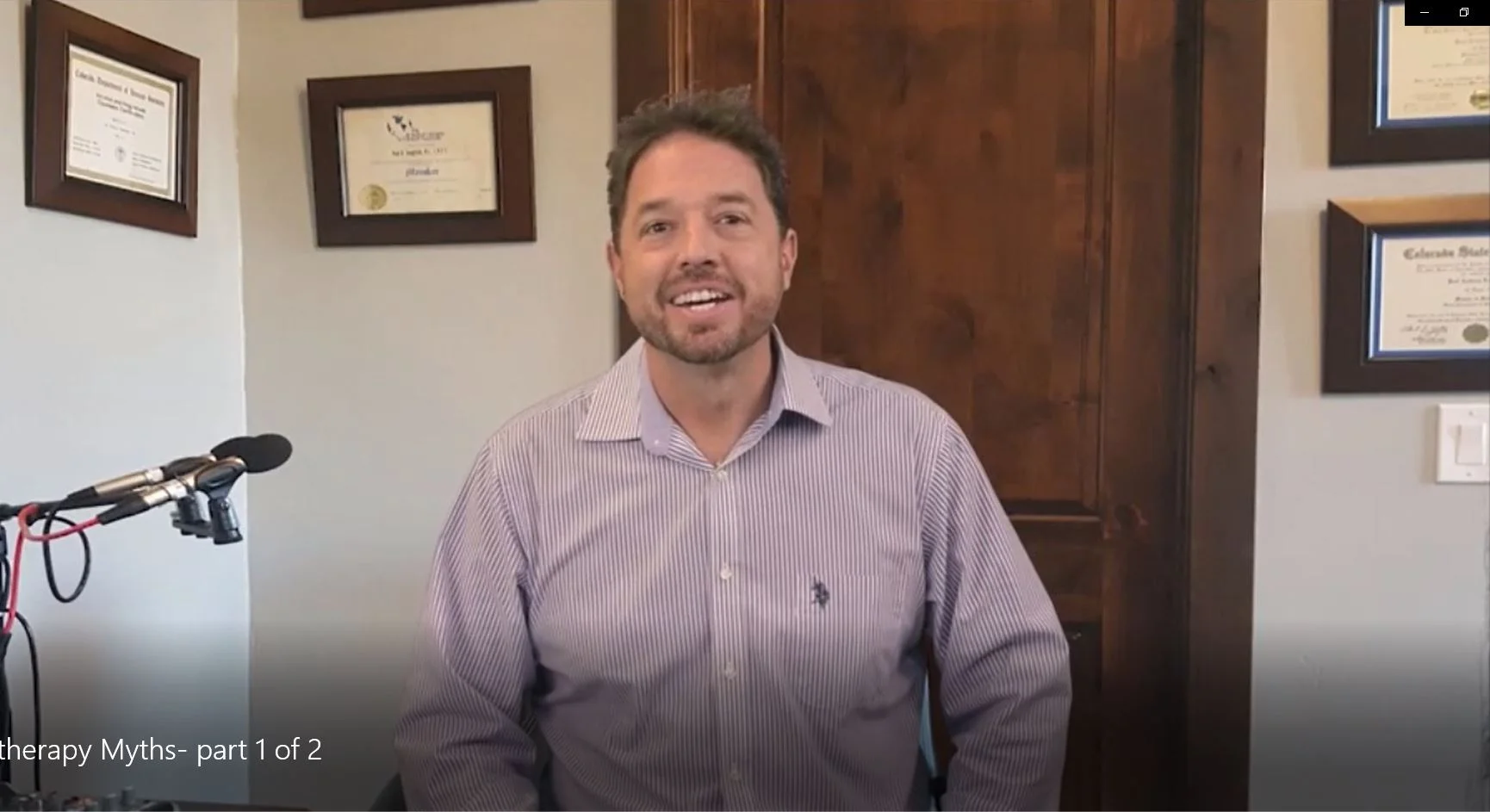What Hypnotherapy is NOT
Here are 8 common myths about hypnosis and hypnotherapy, debunked.
Click below for AUDIO ONLY or VIDEO TRANSCRIPT
What Hypnotherapy IS
Hypnosis is an altered state of consciousness that you naturally pass through every time you fall asleep or wake up. In formal hypnosis, we prolong this brief interlude so that you and I can work within its bounds.
Hypnotherapy is simply the use of hypnosis within a medical discipline such as psychotherapy, dentistry, or general medicine. Any hypnosis practitioner you consider should have significant education, training, and experience in hypnosis in addition to the education and credentials of his or her primary field. Having training and experience in hypnosis alone, doesn’t qualify someone to perform psychotherapy – hypnosis is an added tool.
Do you see the best in yourself, or only the programming you’ve received?
Why use hypnosis as a tool in psychotherapy?
Our minds are extremely suggestible and are constantly bombarded with suggestions from the outside, as well as suggestive “self-talk” from the inside. Our daily struggles and pain often result from negative thoughts and impulses invading our minds from the subconscious.
Unfortunately, past experiences and traumas, societal pressures, guilt feelings, and old “family rules” are constantly pushing themselves into awareness, directly or in disguised forms, undermining our:
· Happiness
· Freedom
· Efficiency
· and Health
By the time we reach adulthood, we have often built up negative modes of thinking, believing, feeling, and behaving which persist like bad habits.
With hypnosis, you and I will work together with your subconscious mind to replace those constant negative influences with positives ones.
How does hypnotherapy work?
Your habits, nervous symptoms and unhappiness may result from life-long conditioning or inner emotional conflicts. Hypnotherapy can help you:
· understand your conflicts
· change life-long beliefs about yourself and the rules you live by,
· and freely release emotions which may have been trapped inside for years.
With hypnotherapy, you can find your inner power, grow in self-esteem and confidence, and become healthier.
“change life-long beliefs about yourself and the rules you live by”
How much or your behavior is driven by habits?
How would hypnosis assist in my therapy process?
Although the effectiveness of hypnosis is remarkable, it’s not magic. There are many conditions in which hypnosis is an efficient and useful tool, and others in which it has little place. In psychotherapy, hypnosis is helpful to reduce stress, pain, and anxiety, and to promote change by accessing:
· Emotions
· Memories
· Core Beliefs,
· and Habit Control Centers.
We are trained in our culture to rely solely on our logical “left brain” to solve problems, but many personal challenges don’t lend themselves to purely logical solutions because they’re emotional or habitual in nature.
In a hypnotic state, we quiet down the constant chattering and analyzing of our left brain long enough to allow our powerful right brain to be a partner in our success.
“many personal challenges don’t lend themselves to purely logical solutions”
Almost 70% of Americans take a prescription pill daily, and 15% take 5 or more prescriptions daily for chronic conditions.
Can Hypnotherapy Help my physical conditions?
Quite often, the answer is yes.
Many physical symptoms have an emotional base. It’s not a new idea that emotional strain or worry can produce physical symptoms. After all, every organ in your body connects to your brain. Its logical that when your nervous system is upset by crisis or conflict, you may feel the effects in various parts of your body.
It also follows that so-called “involuntary” bodily functions such as heart rate and pain may be altered by our minds if we learn the skills to do so with hypnosis. In fact, the successful use of hypnosis for physical symptoms such as chronic pain, high blood pressure, migraines, immune system response, and others have been scientifically documented for decades. The American Medical Association considers hypnosis an “orthodox” treatment (as opposed to an “alternative” or “complimentary” treatment.
“the successful use of hypnosis for physical responses such as pain management has been scientifically documented for decades.”
Why do some people have doubts about hypnosis?
Although it’s been accepted for centuries in other cultures, hypnosis is sometimes misunderstood in the US because popular media has often affiliated hypnosis with various superstitions or forms of entertainment. However, hypnosis has been recognized as a beneficial treatment modality by the American Medical Association, the American Psychiatric Association, the National Institute of Health, and many other organizations and researchers around the world for decades.
Ignorance about a topic invites skepticism and fear, but those who have educated themselves about the power of hypnosis understand its value.
"Recognized as a beneficial treatment modality by the America Medical Association, the American Psychiatric Association, the National Institute of Health and many other organizations”
Portrayal in movies, and hypnosis shows in places like Las Vegas dilute the value of using hypnosis clinically.
Can everyone be hypnotized?
YES, BECAUSE HYPNOSIS IS A NATURAL STATE THAT EVERYONE PASSES THROUGH WHEN GOING TO SLEEP.
It’s possible to resist hypnosis, just as it’s possible to resist going to sleep. However, even if you are initially hesitant about hypnosis, with practice the resistance can be overcome. Hypnosis is a skill that you will learn under my direction, rather than something I do to you.
Popular media sometimes suggests that unintelligent, or naive people are easiest to hypnotize. In reality, the opposite is true. As with most skills, the more intelligence, experience, and focus you bring to the table, the quicker you’ll master the skill.








